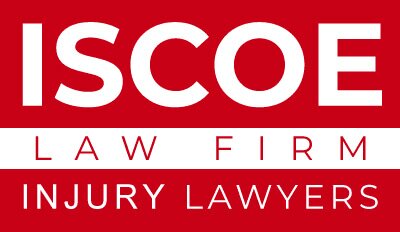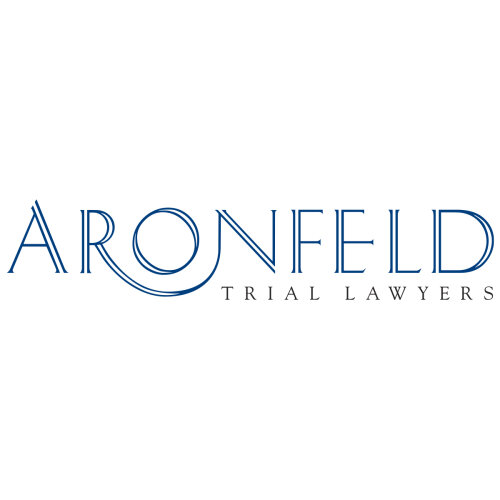Best Property Damage Lawyers in Miami
Share your needs with us, get contacted by law firms.
Free. Takes 2 min.
List of the best lawyers in Miami, United States
United States Property Damage Legal Questions answered by Lawyers
Browse our 1 legal question about Property Damage in United States and read the lawyer answers, or ask your own questions for free.
- MOVING COMPANY DAMAGED RENTAL HOME, FURNITURE AND NEW HOME
- MOVING COMPANY DAMAGED WALLS AND FURNITURE IN TWO HOUSES, THEY DIDNT USED PACKING BLANKETS OR MOVING EQUIPMENT, I FILED A DAMAGE CLAIM MID MOVE, AND RELIEVED THE WORKERS EARLY FROM SCHEDULED TIME TOOK PICS AND SUBMITTED TO THE MOVING COMPANY, NOW THE MOVING COMPANY IS INSINUATING WE CAUSED THE DAMAGE,... Read more →
-
Lawyer answer by T & A Legal
Hello, sorry about the damage to your walls and furniture. The moving company may be liable for a breach of contract or negligence. However, their liability will be determined largely by the contract between you and the moving company.Please note...
Read full answer
About Property Damage Law in Miami, United States
Property damage law in Miami, United States, revolves around cases where personal property, either real (such as buildings and land) or personal (such as vehicles and personal belongings), is damaged or destroyed due to another party's actions or negligence. The law provides mechanisms for property owners to seek compensation or remediation for damages. Variables such as the cause of damage, the extent of responsibility, and property insurance policies play crucial roles in these cases. In Miami, property damage claims can arise from various causes, including natural disasters, construction mishaps, automobile accidents, and acts of vandalism.
Why You May Need a Lawyer
There are several scenarios where you might require the expertise of a property damage lawyer in Miami. Typically, these include disputes with insurance companies over claims, determining liability in multi-party situations, negotiating settlements, and when damage is extensive, with potential safety and financial implications. Additionally, if the damage results from a car accident, an attorney can assist in managing multiple claims from different parties involved. Legal help is beneficial for navigating Miami's specific protocols and achieving fair compensation or repair provisions.
Local Laws Overview
Miami’s property damage laws encompass a range of regulations, primarily framed by Florida state law, since local jurisdictions like Miami ultimately follow state guidelines. Key aspects include the statute of limitations for filing property damage claims, which is typically four years in Florida. Furthermore, Florida operates under "comparative fault" rules, meaning the compensation can be adjusted based on the property owner's share of fault. Miami's susceptibility to hurricanes and heavy storms also means additional regulations are in place for property damage caused by these events, often involving specialized insurance and documentation protocols.
Frequently Asked Questions
What steps should I take immediately after my property is damaged?
Start by documenting the damage with photos and detailed notes, notify your insurance provider without delay, and file a claim. It may also be wise to seek a professional assessment of the damage.
Do I need to file a police report for property damage?
Yes, if the damage is due to criminal activity such as vandalism or theft. A report will help with insurance claims and legal proceedings.
How is compensation determined in property damage cases?
Compensation is generally based on the cost of repair or replacement value, minus any depreciation or insurance policy deductibles.
Can I file a property damage claim for damages caused by a neighbor?
Yes, if the damage resulted from your neighbor's negligence or actions that directly led to damage, such as tree root intrusion or water leakage.
What if my insurance claim is denied?
Consider consulting an attorney to review the claim details. The denial could potentially be challenged or negotiated for a fairer settlement.
Do I need specific hurricane insurance for storm damage in Miami?
While standard policies may cover some storm damage, it's essential to have separate windstorm or hurricane insurance due to Miami's climate considerations.
How long do I have to file a property damage claim in Florida?
Typically, the statute of limitations in Florida for property damage claims is four years from the date of damage discovery.
Can I sue for emotional distress related to property damage?
Emotional distress claims are generally separate and require proving that distress was directly caused by the property damage incident.
What happens if I miss work or lose income due to property damage?
You may be eligible for compensation for lost wages if the damage directly impacts your income, depending on your insurance coverage and the damage cause.
Is mediation required for property damage disputes?
Florida encourages mediation for resolving disputes to avoid lengthy litigation, and it may be required in your property damage case.
Additional Resources
Several resources can assist individuals seeking help with property damage in Miami. Explore the Florida Department of Financial Services for insurance guidance, or the Miami-Dade County Consumer Protection Agency for mediation services. Additionally, legal aid organizations in Miami can provide valuable resources and sometimes offer free or reduced-cost legal assistance.
Next Steps
If you need legal assistance with property damage in Miami, consider conducting research to find qualified local attorneys who specialize in property damage. It’s important to prepare all necessary documentation and evidence of your claim. Initial consultations are often free, providing a safe space to evaluate your situation and understand your legal options without immediate cost obligations. Additionally, reaching out to your insurance provider for detailed policy information and assistance can help streamline the process as you consider legal representation.
Lawzana helps you find the best lawyers and law firms in Miami through a curated and pre-screened list of qualified legal professionals. Our platform offers rankings and detailed profiles of attorneys and law firms, allowing you to compare based on practice areas, including Property Damage, experience, and client feedback.
Each profile includes a description of the firm's areas of practice, client reviews, team members and partners, year of establishment, spoken languages, office locations, contact information, social media presence, and any published articles or resources. Most firms on our platform speak English and are experienced in both local and international legal matters.
Get a quote from top-rated law firms in Miami, United States — quickly, securely, and without unnecessary hassle.
Disclaimer:
The information provided on this page is for general informational purposes only and does not constitute legal advice. While we strive to ensure the accuracy and relevance of the content, legal information may change over time, and interpretations of the law can vary. You should always consult with a qualified legal professional for advice specific to your situation.
We disclaim all liability for actions taken or not taken based on the content of this page. If you believe any information is incorrect or outdated, please contact us, and we will review and update it where appropriate.













